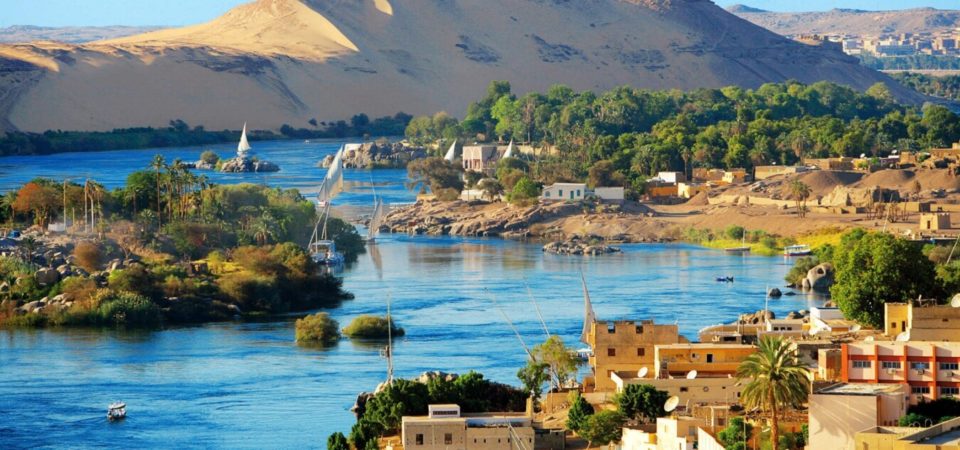
Welcome to Aswan — a serene, sun‑drenched city in Upper Egypt where the mighty Nile, Nubian culture, ancient monuments and desert landscapes come together to create a unique travel experience.
📍 Location & Overview
Aswan lies in southern Egypt along the Nile River and serves as a gateway to Nubia and the southern reaches of the country.
Historically known as “Sunn” in ancient Egypt, it was a strategic frontier town, connecting Egypt with Nubia and Africa beyond.
Today, Aswan combines relaxed river‑life, cultural richness and access to major archaeological sites, making it a standout destination for heritage and nature lovers.
🌟 What Makes Aswan Special
🏛 Rich Heritage & Archaeology
Aswan is home to important ancient sites, such as the island temple of Philae, the granite quarries (including the Unfinished Obelisk), and the famous Abu Simbel temples to the south.
The region has layers of history: Pharaonic, Nubian, Greco‑Roman, Islamic and modern—giving a deep cultural and historical fabric.
🌊 Majestic Nile & Scenic Landscape
The Nile here flows wide and calm, fringed by palm groves, islands, and traditional felucca sailboats — a picturesque setting for relaxing, cruising and reflection.
The surrounding desert hills, islands in the river and lakes (such as Lake Nasser further south) provide adventure, quiet retreats and expanses of nature.
🧡 Nubian Culture & Local Life
Aswan is a centre for Nubian culture — vibrant villages with brightly‑painted houses, folk music, distinctive cuisine and warm hospitality.
The local markets (souks) are enticing: spices, textiles, hand‑crafts, traditional Nubian items — an authentic cultural experience.
🏗 Modern Engineering & Iconic Views
A visit to the Aswan High Dam is engaging — both for its sheer scale and for its role in modern Egyptian history and the shaping of the Nile.
From boat rides to sunset views, the unique blend of river, desert, lush islands and historical monuments is rarely matched elsewhere.
🎯 Top Things to Do
Explore the Temple of Philae on Agilkia Island, beautifully relocated after the dam’s construction.
Sail on a felucca around the Nile’s islands at dusk — a tranquil, atmospheric experience.
Visit a Nubian village: soft coloured houses, traditional music, local crafts, riverside peace.
Browse the souk of Aswan: spices, fabrics, local souvenirs and the lively atmosphere of the market.
Tour the High Dam, Elephantine Island and the granite quarries, including the Unfinished Obelisk.
Day trip (or overnight) to Abu Simbel for one of Egypt’s most extraordinary temples.
Opt for nature‑based activities: desert excursions, bird‑watching on Nile islands, lake or river cruises.
🛠 Practical Info & Travel Tips
Best Time to Visit: Aswan can get very hot in summer; the cooler months (approximately October‑April) are more comfortable for exploring.
Getting There: Aswan is served by its own airport, train connections from Cairo/Luxor, and is a common stop for Nile cruises.
Accommodation & Stay: From boutique hotels overlooking the river to larger resort‑style stays — riverfront lodging is highly recommended.
What to Bring: Light breathable clothing, sun protection, comfortable walking shoes, perhaps a shawl for boat rides in the evening.
Mind the Heat & Hydration: Especially if you explore outdoor historic sites or desert areas; take water breaks.
Local Etiquette: As always in Egypt, modest dress is wise outside resort zones, especially when visiting villages and religious sites.
Tour Guide Advantage: A knowledgeable guide greatly enriches the experience — especially for the archaeology and Nubian culture.
Responsible Travel: Respect the natural and cultural environment: the river, desert, and Nubian communities benefit from mindful tourism.
✅ Why Visit Aswan?
It offers a peaceful escape compared to busier tourist hubs, yet delivers strong heritage, scenic beauty and cultural depth.
A perfect blend of history + nature + culture: from ancient temples to river cruises, from desert sands to Nubian village life.
Ideal for travellers who appreciate contemplative pace, warm ambience and layered experiences rather than the frenzy of big‑tourist hubs.
